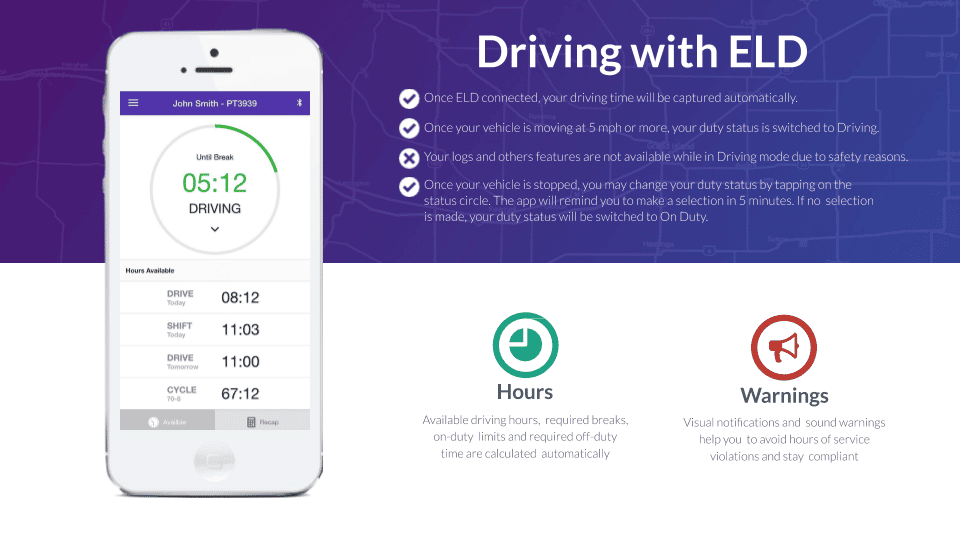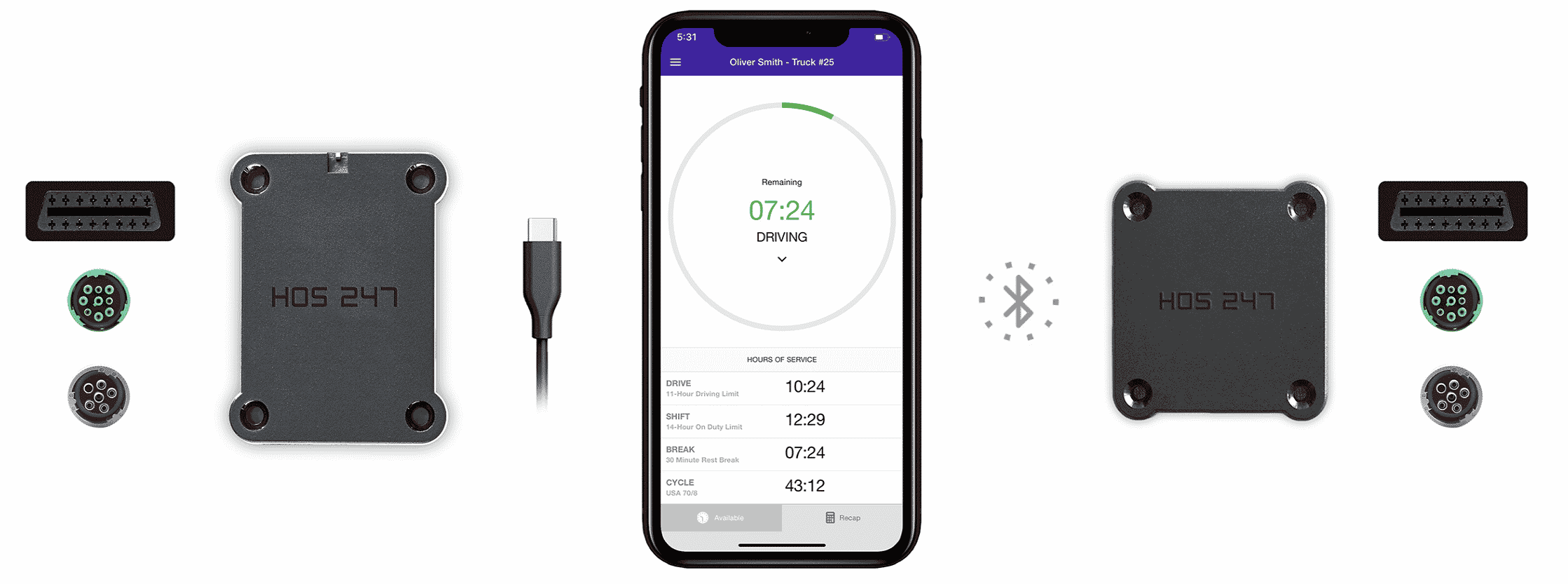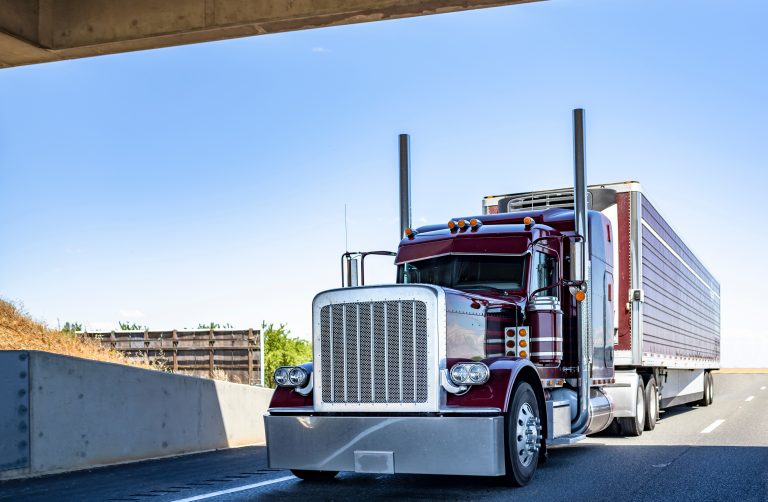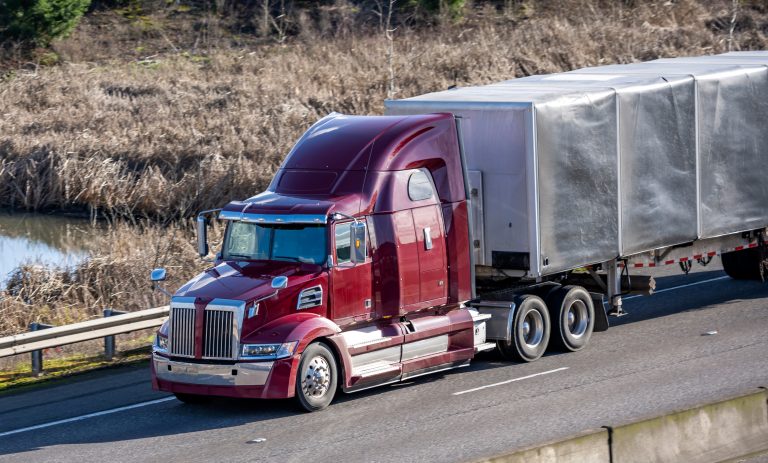Electronic logbooks have become an essential part of trucking. Transportation professionals know that quality elogs help operations run smoothly. However, finding the right one can be challenging. This article will help readers make the best choice for their business by outlining important qualities to look for when choosing an ELD electronic log device and red flags to avoid.
Do you have any questions? Talk to ELD Advisor: 650-405-3372 or Request Callback
HOS247 Is a Leading ELD Provider
HOS247 is a reliable partner for trucking professionals. Our team is dedicated to providing quality service with timely support. The HOS247 ELD electronic log device offers many advantages and benefits; we bring customers added value beyond the basic requirements, including:
- Multilingual customer support. Our top-rated support team is ready to assist clients with logbook and compliance issues seven days a week. We speak English, Spanish, Russian, and Polish.
- Driver-friendly solution. HOS247 is known for its intuitive and easy-to-use logbook app. You can read reviews from drivers, owner-operators, and fleet managers to help you get a sense of the system’s performance on the road.
- Dependable hardware. The hardware piece only takes a few minutes to install. The durable material makes it so it does not break mid-drive. Should anything happen, we have a one-year free replacement warranty.
- Stable Bluetooth connection. The pairing of the hardware and the app works seamlessly to achieve accurate data transfer via Bluetooth at any point during the drive.
- IFTA mileage calculations. Automate IFTA calculations to prevent human error in tax reporting and reduce audit risk.
- Real-time GPS. Fleet visibility helps optimize load management, and operations are more efficient with the real-time GPS tool.
- Driver vehicle inspection reports. Ensure safety and increase your vehicles’ useful lives with pre- and post-trip inspection reports and timely maintenance reminders.
- Fault code notifications. Get real-time alerts when the engine presents issues to increase driver safety.
- No contract policy. HOS247 works on the principle of reliability. Our clients decide how long they keep the service; there is no need to sign a contract and commit to our solution for long periods. We also offer a two-week trial with hassle-free returns.
- Save on preventable costs. Avoid costly violations and clear DOT inspections with our FMCSA-registered ELD electronic log device and cut operation costs with the fleet management features.

How ELD Electronic Log Devices Can Improve Your Business
ELDs are a tool of mandatory use mainly for safety purposes: automatic HOS recording improves compliance with regulations, preventing driver fatigue and reducing accidents. However, they can also bring several benefits for carriers. For starters, automation reduces the paper load and fleet managers’ workload. This saves time and money on office administration. Moreover, ta reliable ELD will offer customers the following benefits:
- Reduced costs. From preventing breakdowns through timely maintenance reminders to reducing fuel consumption with idling monitoring and avoiding fines, the right electronic logging system can become an asset for any size fleet to increase profitability.
- Lower insurance premiums. Insurance companies consider the safety offered by elogs (and their GPS feature) and give carriers that use them lower insurance premiums.
- Lower CSA scores. The right logbook prevents violations that can cause carriers’ CSA scores to rise, which means reduced trust from customers.
Clues to Find the Right ELD
There are many electronic logbook options in the market. The FMCSA has created a list of registered devices to help truckers find an elog solution that is compliant with the norm. However, it is crucial to understand that the electronic logbook providers on this list are “self-certified.”
Self-certification does not mean that they are guaranteed to be compliant with federal regulations since the FMCSA does not verify or endorse them; it simply means the provider declares they have met the requirements. Therefore, inclusion in the list is necessary, but it is not enough to know if the device is suitable for your business. We will now look at some ways to determine if an ELD electronic log device is reliable, as well as some things that it is best to avoid.
Green Flags
- Positive reviews. When you hear positive comments through word-of-mouth you know there’s something to it. Try looking at reviews from actual users on unbiased platforms online (such as Google Play or the Apple App Store). Other trucking professionals are excellent sources of information.
- User friendly. Successful technology is always simple to use. Drivers have plenty of work already; the logbook should be easy to manage so they can focus on doing their job.
- Compatibility. A logbook app that works well with several types of mobile devices (and operating systems) will save money on additional tablets and time since each driver can work with the operating system they are more comfortable with. Making sure the provider supports the different types of vehicles that make up the fleet will also save customers unnecessary troubles.
Red Flags
- Long contracts. Some providers will have clients sign service contracts for up to 5 years. Since businesses, and especially technology, change over time, it is probably best for trucking professionals to have some freedom to switch providers.
- Unclear pricing. Occasionally, providers will not show the full cost for contracting their services. Clients may end up paying more than they thought they agreed to. Ask the elog system provider about additional fees for installation, training, activation of their service, or any other concepts.
- Unreliable technical support. When there’s a problem on the road, truckers need support from real people, not an answering machine. Try calling the vendor’s support line; that should give you a fair picture of how ready to assist they are when needed.
What Other Features Are Needed for Trucking Operations?
The extra features that accompany the ELD are also important in making the right decision. These features can be used to optimize the performance of the fleet, and carriers should know them and ask the provider about including them in their plan:
- IFTA mileage reporting. ELD systems integrate a feature to streamline IFTA calculations. The elog device can collect accurate mileage data per jurisdiction and ease IFTA reporting.
- GPS tracking. GPS trackers make drivers, vehicles, and loads safer. They also allow carriers to improve their customer service with more efficient load assignment and accurate ETA.
- Idle time reporting. Since the device is synchronized with the engine, it can keep track of idling time. This enhances fleet efficiency by helping to manage idling better and reduce fuel costs.
- Vehicle diagnostics. Fault code detection and inspection reporting make it easier to keep fleet maintenance on schedule. This way, the vehicles are always in top shape, breakdowns are prevented, and reparation costs are substantially reduced.

Who Needs to Comply with the ELD Mandate?
The ELD mandate applies to millions of drivers. Trucking professionals who are required to keep HOS are most likely required to use an electronic log device for this purpose. These regulations also apply to drivers operating in the United States, even if they reside in Mexico or Canada.
However, there are some exemptions to this rule. First, drivers using timecards are not required to log their HOS, so they are not required to use electronic logbooks either. In other cases, truckers may operate without an ELD, so long as they use paper logs as stated by the RODS requirements in 49 CFR 395. These are the four exemptions in which drivers can forego the electronic logbook:
- RODS for less than 8 days per month. Drivers who need to keep RODS for less than 8 days in any 30-day period may use paper graph grids.
- Drive-away-tow-away operations. When the truck being driven is the shipment, the driver does not need to use an electronic logging device to monitor HOS.
- Pre-2000 vehicles. Vehicles with engines manufactured before the year 2000 are not compatible with ELD technology, so they are not required to use them.

I’ve co-founded, built and managed several transportation-related businesses. Now, I’m a founder and CEO of HOS247 – an AI Transportation Platform for trucking companies, freight brokers and other logistics operations. We are transitioning old-style operations to technology-advanced logistics entities and help them to grow their businesses. ELDs (electronic logging devices), fleet tracking and management 2.0 combined with AI-powered dispatch tools.












Electronic logging devices will soon be the legally required way to record drivers’ hours of service. If you’re on the lookout for a new elog option for your fleet or trucking company, then you need to find ELD devices for

According to the ELD mandate, published in the Canada Gazette and enforced by Transport Canada, commercial vehicle drivers must use approved electronic logging devices instead of paper logs to keep records of duty status come January 1, 2023. This includes

The Canadian ELD mandate has been talked about at length among truckers and carriers for a couple of years now. According to this legislation, commercial vehicle owners and drivers operating in Canada must switch to a certified electronic logbook before